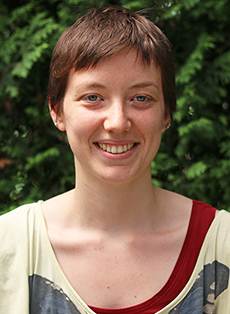Lena Bohn

Department of Behavioural Biology
Institute of Neuro- and Behavioural Biology
Badestr. 13
D-48149 Münster, Germany
Tel.: +49 251/83-24783
lena.bohn@uni-muenster.de
Nationality: Swiss
Optimistic and pessimistic decision-making under ambiguity: causes and consequences for niche conformance
Background:
“Is the glass half-full or half-empty?” This famous question is often used to label people either as optimists or as pessimists. Optimists and pessimists perceive the world differently; they exhibit a (cognitive judgemental) biased towards expecting a positive or a negative outcome. In ambiguous situations, where there is not enough information to make an appropriate decision, we make decisions according to our bias. However, humans are not the only animals to express positive or negative biases. Different factors to affect bias in non-human animals have been identified, like housing condition or genotype.
Aim of this project:
We want to continue the research on decision-making under ambiguity and cognitive bias, but from the perspective of behavioural ecology.
Research questions:
Project:
Part I: Using different strains of mice and different housing conditions, we want to investigate the effects of housing, genes, and their interaction on the biases of the individuals. To test for their bias, mice will learn to associate one cue with a positive outcome (big reward), and another cue with a negative outcome (small reward). After they learned the association, we will give them an ambiguous, intermediate cue, and see how they respond to it. Individuals with a positive bias (optimists) will expect a big reward, while individuals with a negative bias (pessimists) will expect a small reward.
Part II: Having identified optimists and pessimists, we then want to measure how well individuals – according to their bias – cope with their current environment (niche conformance). By performing different tests and experiments, we will measure (potential) behavioural, physiological, and genetic differences between individuals with different biases.